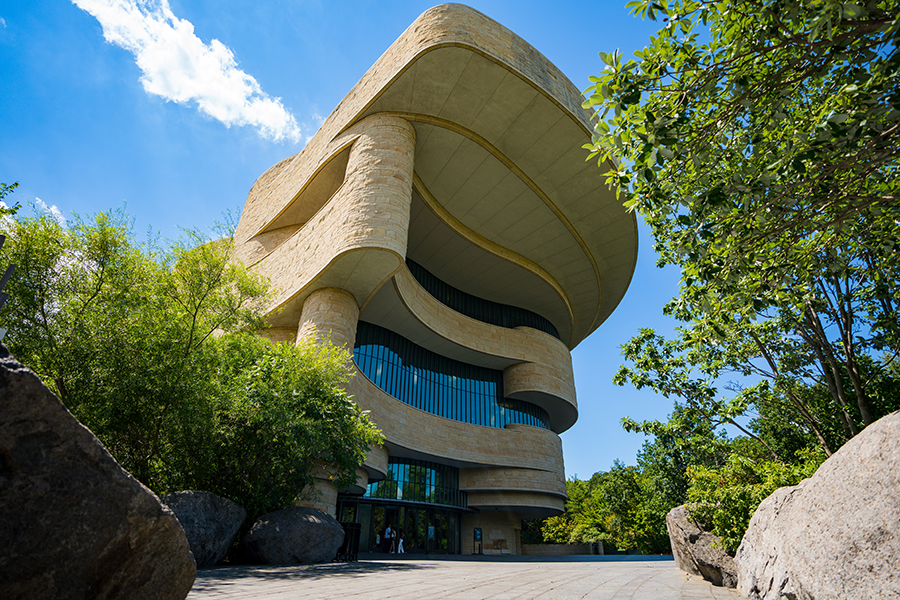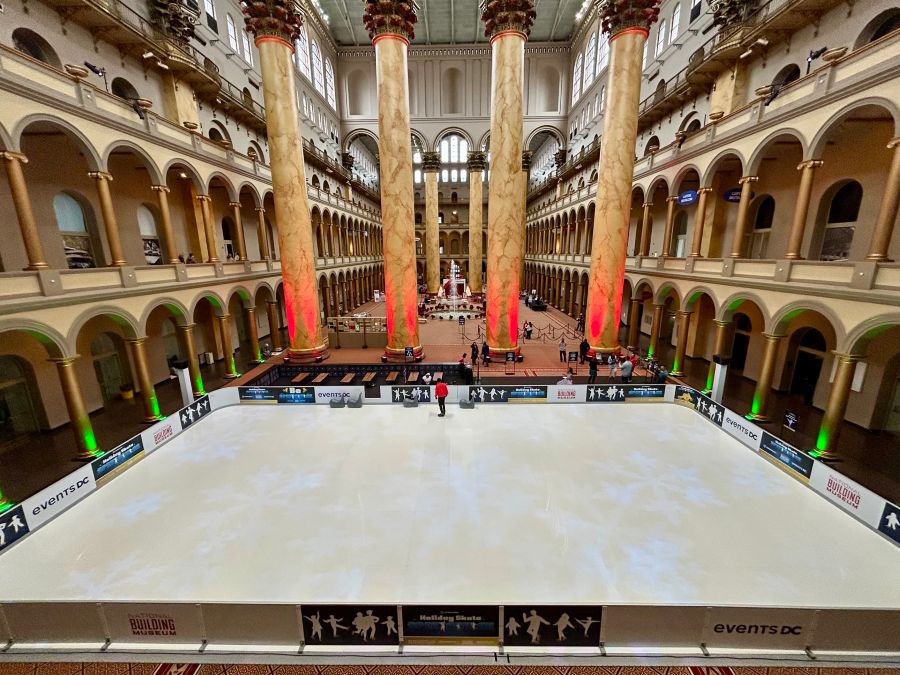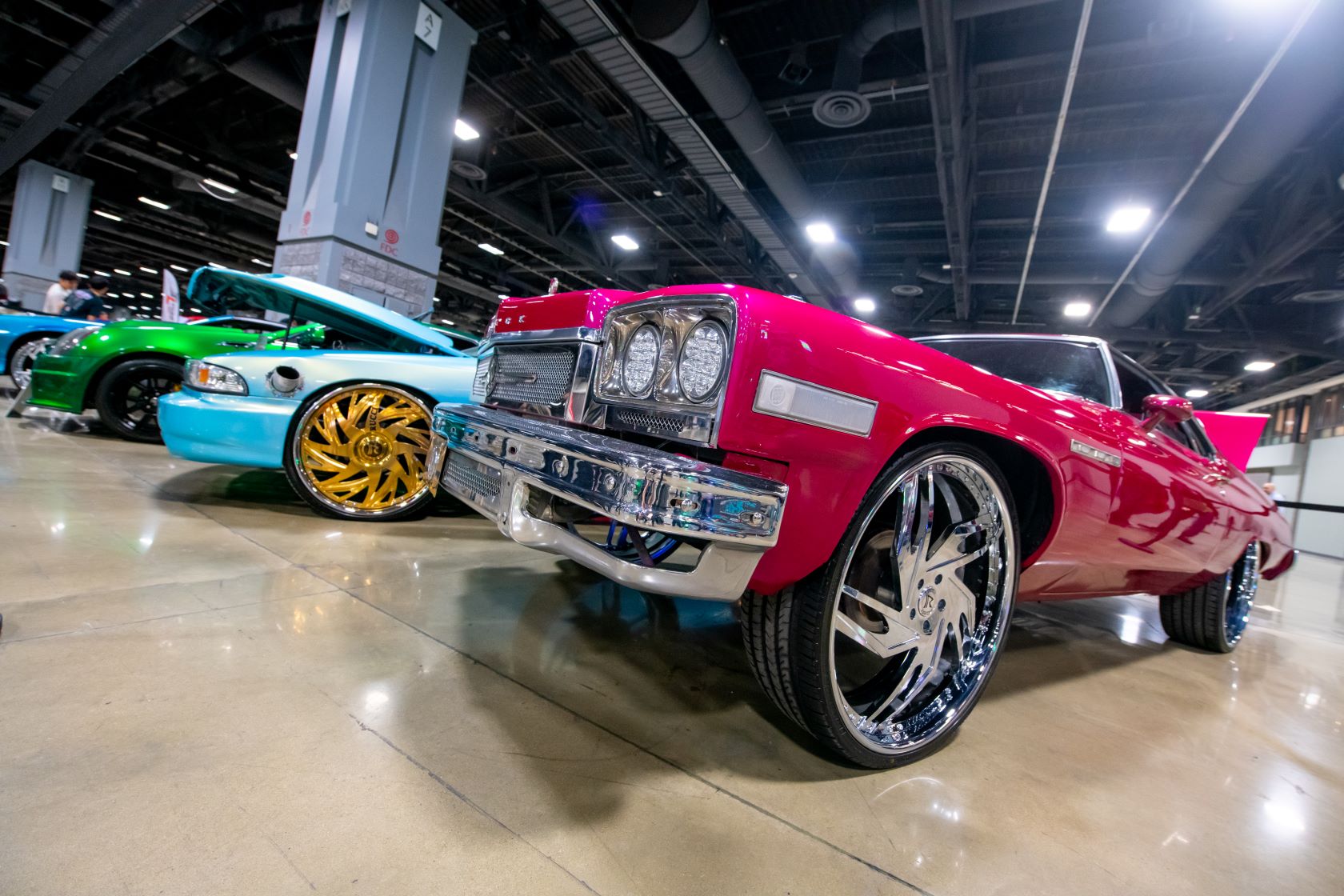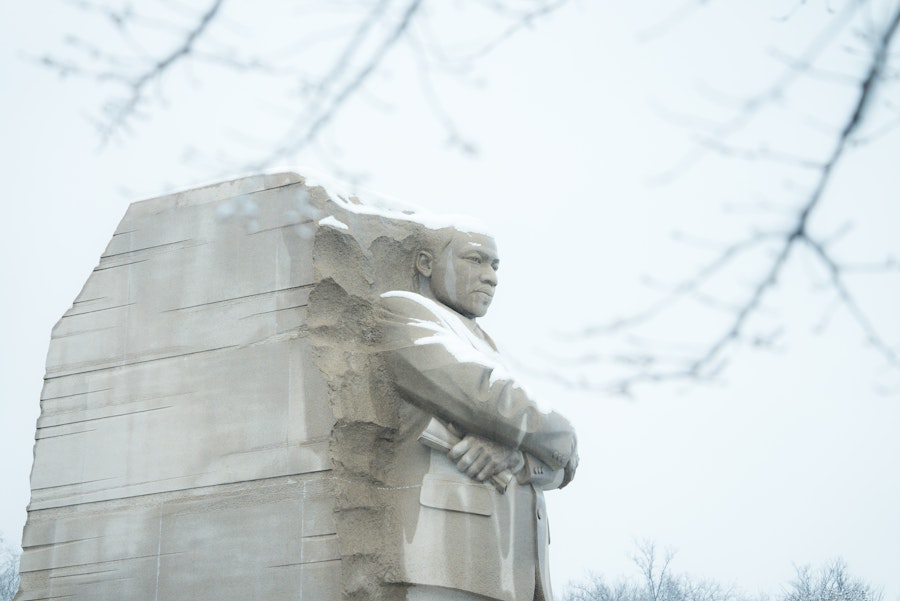
Experience the history, culture and traditions of Indigenous peoples at this free Smithsonian museum on the National Mall.
Through immersive exhibits and artwork, the unparalleled National Museum of the American Indian (NMAI) provides a powerful window into Native American stories, past and present.

What is the Smithsonian National Museum of the American Indian?
Since its enabling legislation was passed in 1989 (and an amendment in 1996), the National Museum of the American Indian has amassed one of the world’s most expansive collections of Native American objects, photographs, artifacts and media. The institution is dedicated to bringing Native voices front and center, representing the depth and diversity of Native cultures through contemplative exhibitions, interactive activities, colorful performances and lectures.

How do I visit the National Museum of the American Indian?
The NMAI is located on Independence Avenue SW on the National Mall. The easiest way to get there is via public transportation. If traveling by Metrorail, get off at the L’Enfant Plaza stop on the Blue, Orange, Silver, Green and Yellow lines and use the Maryland Avenue/Smithsonian Museums exit. You can also arrive via Metrobus.
Like all Smithsonian museums, entry is free. At NMAI, no tickets are required.

What inspired the museum's look?
The NMAI provides its first “wow!” moment before you even walk in the door. The building is one of DC’s most visually striking, with its curvilinear structure and limestone material designed to resemble rock formations affected by wind and water over thousands of years. The museum's architecture, landscape and exhibitions were designed in consultation with American Indian, Alaska Native and Native Hawaiian tribes and communities.

What’s inside the National Museum of the American Indian?
The museum's collections represent more than 12,000 years of history across 1,200-plus indigenous cultures from the Americas. These objects range from the aesthetic to the religious to the historical, helping to form a comprehensive catalogue of Native American culture.
Ongoing exhibitions at the museum include Return to a Native Place: Algonquian Peoples of the Chesapeake, which allows you to meet the Native peoples of the Chesapeake Bay through maps, ceremonial objects, photographs and interactive displays. These details can help you have a deeper understanding of just how prevalent Native Americans were, and are, to the areas surrounding DC.
The museum regularly features new exhibits, so check to see what’s on display before you go.

Mitsitam Native Foods Café / Museum of the American Indian
Is there somewhere to eat at the National Museum of the American Indian?
The Mitsitam Foods Cafe is a sensation even among locals, so make sure to save time for a meal there. A recently revamped menu includes delicious Indigenous flavors masterminded by new Executive Chef Alexandra Strong.

Can I also visit the National Native American Veterans Memorial?
Absolutely – no visit is complete without taking in the National Native American Veterans Memorial, located on museum grounds. The touching tribute to Native heroes is beautifully designed, featuring an elevated stainless-steel circle balanced on a stone drum.




